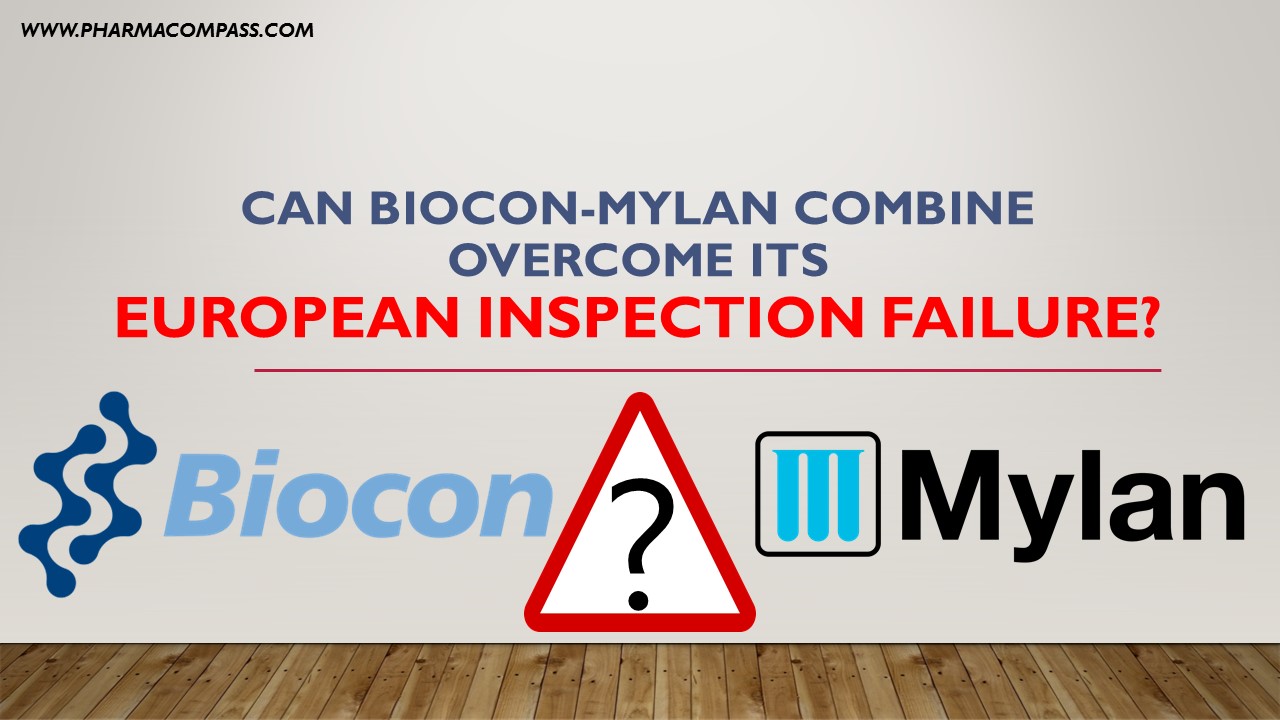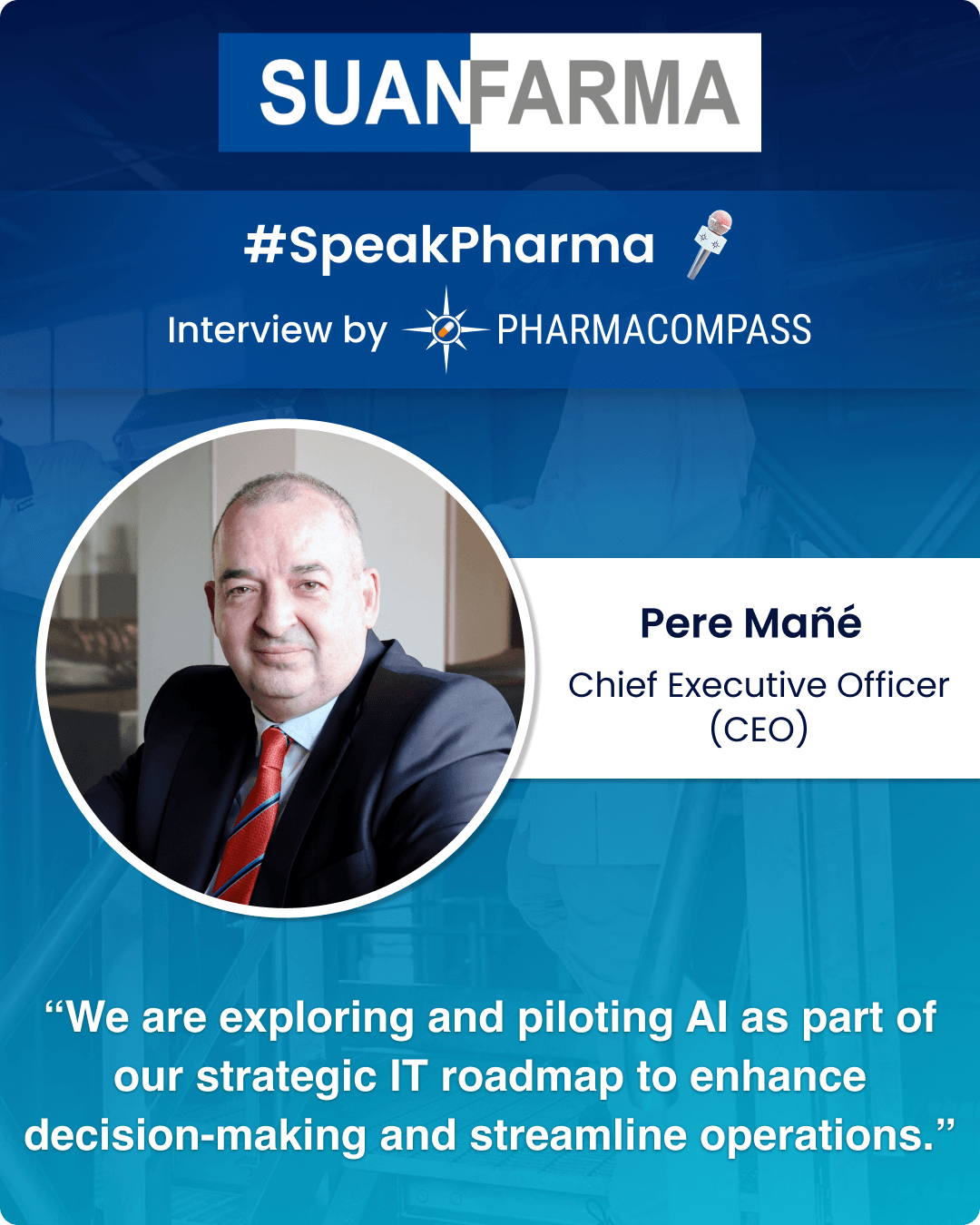
Last week, PharmaCompass broke the story about Biocon’s biosimilar program suffering a serious setback as a current Good Manufacturing Practices (cGMP) inspection by the French health agency — ANSM — in March 2017 of its site located in Bengaluru, India, uncovered 35 deficiencies, of which 11 were deemed major.
The inspection was conducted on behalf of the European Medicines Agency (EMA) by the ANSM as a pre-approval inspection for the drug product manufacturing activities of the following (three) biosimilar products — Fulphila® (pegfilgrastim), Ogivri® (trastuzumab) and Semglee® (insulin glargine).
Following our story, Biocon issued a statement which mentioned that it had received “GMP approval for biologics drug substance facilities” from the French regulator; and that the drug product facility is “to be re-inspected”.
This week, PharmaCompass delves deeper into the findings of the French health agency and looks at potentially what this could mean for the future of Biocon’s biosimilar program.
Concerns raised by
ANSM in March 2017 inspection
In 2006, Biocon established India’s largest integrated biotechnology hub, comprising of an integrated cluster of research laboratories and manufacturing facilities spread across 90 acres in a Special Economic Zone (SEZ) near Bengaluru.
In March 2017, the French health agency conducted inspections of three Biocon facilities, two of which were located within the Special Economic Zone in Bommasandra in Bengaluru, and the other in Electronics City, Bengaluru.
Biocon received Good Manufacturing Practices (GMP) compliance certificates for one facility located in the SEZ and the other in Electronic City. The inspection certificate reports that the approved SEZ plant performed manufacturing activities for trastuzumab. It also performed activities for pegfilgrastim, restricted to quality control (physico-chemical and microbiological).
The Electronics City facility manufactures the active substance used in the pegfilgrastim and insulin glargine biosimilars.
In ANSM’s non-compliance report issued to the drug product manufacturing facility (situated in the SEZ in Bommasandra), its concerns relate to the following operations of the biosimilar products: Fulphila® (pegfilgrastim), pre-filled syringe presentation: drug product manufacture and quality control operations; Ogivri® (trastuzumab), vial presentation (freeze-dried product): drug product manufacture and quality control operations; Semglee® (Insulin glargine), cartridge presentation: secondary packaging and drug product quality control.
cGMP manufacturing – a stumbling block for biologic drugs
There is no doubt that ANSM’s issuance of GMP compliance certificates to Biocon’s two drug substance facilities for biosimilars is a tremendous achievement.
However, concerns over fill/finish drug product operations have recently delayed US approvals for Pfizer’s biosimilar of Amgen’s drug Epogen (epoetin alfa) as well as Sanofi’s Humira competitor, sarilumab. While Sanofi was able to address the regulator’s concerns in just a few months, Pfizer is facing an uphill battle in its effort to resolve compliance issues at its McPherson, Kansas facility, which it acquired as part of the US$ 17 billion acquisition of Hospira.
Unlike other products for which biosimilars have been approved by the US and European regulators, Amgen’s Neulasta (pegfilgrastim), which brought in US$ 4.6 billion in sales last year, has not been an easy product to get approved.
Sandoz — Biocon’s competitor for a Neulasta biosimilar — withdrew its European application earlier this year after clinical equivalency concerns coupled with concerns over the lack of a certificate of GMP for the medicine’s manufacturing site emerged.
Sandoz’s European withdrawal follows a rejection by the US Food and Drug Administration (FDA) of Sandoz’s application for its proposed Neulasta biosimilar in July 2016, after accepting it for review in November 2015.
A little over a month ago, Coherus BioSciences Inc announced that the FDA denied the approval of its Neulasta biosimilar. The FDA requested Coherus for a re-analysis of certain data and asked the drug developer for more manufacturing information, the company said.
Other biosimilar makers have encountered problems as well. Hungary’s Gedeon Richter, withdrew its application for a biosimilar of Neulasta after the EMA “was concerned that study results had not shown that (the proposed biosimilar) was handled by the body in the same way as the reference medicine Neulasta.”
In 2014, Apotex was the first to file a proposed biosimilar application for pegfilgrastim in the United States. After that, there has been no news from Apotex, though in a recent May 2017 citizen petition Apotex has asked the FDA to require pegfilgrastim biosimilar applicants to conduct appropriate clinical studies for this complex biologic.
In its petition, Apotex highlighted that Coherus had apparently not conducted the necessary studies and a month later, the FDA denied Coherus’ approval.
In 2013, Biocon entered into an exclusive strategic partnership with Mylan for a broad portfolio of biosimilars and generic insulin analogs. And, in February 2017, the FDA accepted Mylan/Biocon’s proposed pegfilgrastim biosimilar (MYL-1401H) for review. Based on the User Fee Act, the FDA should take a decision on this application by October 9, 2017.
Losing the pole
position on trastuzumab
Although Roche’s European patents on Herceptin (trastuzumab) expired in 2014, it is still the third-biggest drug, with 2016 sales of US$ 6.7 billion (CHF 6.8 billion) for the Swiss Group.
Until the news of the ANSM inspection surfaced, Mylan and Biocon were expected to be the first to bring a Herceptin biosimilar to market.
A recent QuintilesIMS report, commissioned by the European Commission, shows that in therapy classes where more than one biosimilar has been launched, the first to market biosimilar usually takes the highest biosimilar market share. The report shared examples where the first biosimilar entry captured over 70 percent of the biosimilar market share compared with just 30 to 40 percent for the second entry. A third entrant captured only 5 to 22 percent of the market.
While Biocon submitted its application to the European agency in August 2016, Samsung followed with its submission in October 2016, Celltrion in November 2016 and Amgen in March 2017.
Any approval delay could lead to a revenue loss of hundreds of millions of dollars.
Biocon stock gains on back of meet to discuss Mylan’s trastuzumab filing
Despite everything, there hasn’t been much adverse impact on the Biocon stock due to the news on the French health agency’s inspection. The Biocon stock gained over 13 percent intraday on July 12 as investors turned bullish ahead of the FDA’s Advisory Committee (Adcom) meeting (to be held on July 13) to discuss the trastuzumab filing done by Mylan.
According to news reports, investors could monitor the outcome of the Adcom. If the product is approved by the FDA, it will be the first Herceptin biosimilar in the US market.
Moreover, the brokerages remained mixed on Biocon’s prospects. According to Moneycontrol, “Biocon could be a beneficiary of the unfolding global biosimilar opportunity.”
Our view
Prior to the ANSM inspection, Biocon was inspected by the FDA where discrepancies between the information submitted and the manufacturing process performed at Biocon were uncovered.
The company responded in a similar manner by saying that a Form 483 is a standard outcome of any audit and it had responded to all FDA observations.
Now, it remains to be seen how quickly the regulators are convinced with the responses so that Biocon and its exclusive strategic partner Mylan can make a landmark entry into the field of biosimilars.
Given all the hurdles in the way to get a biosimilar approved, it remains to be seen whether the Biocon-Mylan combine will create history, or become yet another ‘has been’ in the race for biosimilars.
The PharmaCompass Newsletter – Sign Up, Stay Ahead
Feedback, help us to improve. Click here
Image Credit : Can Biocon-Mylan Combine by PharmaCompass is licensed under CC BY 2.0
“ The article is based on the information available in public and which the author believes to be true. The author is not disseminating any information, which the author believes or knows, is confidential or in conflict with the privacy of any person. The views expressed or information supplied through this article is mere opinion and observation of the author. The author does not intend to defame, insult or, cause loss or damage to anyone, in any manner, through this article.”





